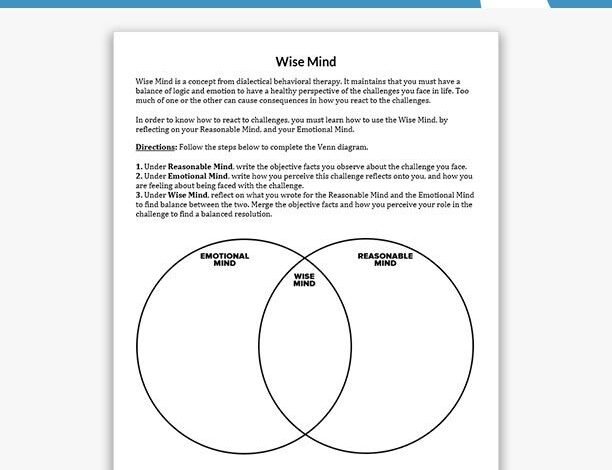Addiction and the Brain Group Activity PDF: Insights and Resources
Addiction and the Brain Group Activity PDF: Insights and Resources

Addiction is one of the most complex health challenges impacting millions of people worldwide. It isn’t merely a matter of willpower or choices—it’s deeply rooted in the brain, altering its chemistry and functionality in profound ways. Recognizing this connection is the first step towards recovery. That’s where group activities come into play, offering a safe and supportive space for growth and healing.
This blog will explore how addiction affects the brain, the power of group activities in fostering recovery, and introduce a valuable resource—the brain group activity PDF—that facilitators can use to enhance discussions and support programs. By the end, you’ll have actionable insights and a downloadable guide that could make a significant difference in someone’s recovery process.
What Addiction Does to the Brain
Addiction fundamentally alters how the brain functions. It’s important to understand these changes to better grasp the challenges faced by individuals dealing with it.
Changes in Neural Pathways
Addiction creates compulsive behaviors by hijacking the brain’s “reward system.” Addictive substances flood the brain with dopamine, a neurotransmitter responsible for feelings of pleasure and reward. Over time, the brain adjusts by reducing its natural dopamine production, making it harder for individuals to feel joy or satisfaction without substance use.
This rewiring reinforces the cycle of dependency and makes quitting incredibly difficult. The prefrontal cortex, responsible for decision-making and impulse control, also weakens, leading to a loss of self-regulation.
Long-term Impact on Neurotransmitters
Substance use doesn’t just affect dopamine—it also interferes with serotonin (mood regulation) and GABA (reduction of anxiety). This imbalance can lead to heightened feelings of stress, depression, and anxiety, further fueling substance dependency as a coping mechanism.
Understanding this biological impact is crucial for anyone supporting individuals battling addiction. It shifts the perspective from judgment to empathy, laying a foundation for compassionate recovery strategies.
The Role of Group Activities in Recovery
Addiction isn’t just a biological challenge—it’s also a social one. Isolation, shame, and stigma often accompany substance use disorders. This is where group activities shine, providing a sense of community and understanding that’s vital for recovery.
Why Social Support Matters
Numerous studies underline the importance of social support in overcoming addiction. Connecting with others who share similar experiences can reduce feelings of isolation while offering valuable coping strategies. Group settings create a space for sharing stories, offering encouragement, and building accountability.
Activities That Foster Connection
Thoughtfully designed group activities help participants better understand addiction and its effects while fostering trust and camaraderie. These activities encourage open dialogue in a nonjudgmental environment, helping individuals process their emotions and feel empowered to take the next steps in their recovery.
Introducing the Brain Group Activity PDF
The brain group activity PDF was developed as a tool to bridge the gap between understanding addiction and taking actionable steps toward recovery. It’s designed for facilitators, counselors, or anyone involved in supporting those dealing with addiction.
Objectives of the PDF
- Educate participants about the science of addiction and its impact on brain function.
- Promote group discussions that allow individuals to share their experiences and insights.
- Encourage emotional connection and collaboration among group members, fostering a stronger sense of community.
- Empower participants with knowledge and strategies that can aid in their recovery journeys.
How to Use It
The PDF includes interactive activities such as diagrams that explain addiction’s impact on the brain, journaling prompts for self-reflection, and collaborative exercises to promote group support. It’s versatile and can be integrated into various settings, from informal support groups to structured rehab programs.
Success Stories: Real-Life Impact
The brain group activity PDF has already made a difference for many individuals. Here are a couple of testimonials that highlight its effectiveness:
- Alex, 34 (recovery group participant): “Understanding what my brain was going through made me feel less broken. The group discussions helped me see that recovery isn’t just about quitting—it’s about healing.”
- Samantha, 42 (facilitator): “The PDF provided a great starting point for deeper conversations. Participants were more engaged and open, which made the group feel like a safe space for everyone.”
These stories underscore the impact of combining education with emotional support, making recovery a shared and enriching experience.
Tips for Incorporating the Brain Group Activity Into Support Programs
Here are some practical tips for facilitators looking to integrate the brain group activity into their existing frameworks:
- Set the tone: Create a welcoming and judgment-free environment where participants feel safe.
- Divide activities into manageable chunks to avoid overwhelming participants with too much information at once.
- Encourage participation by pairing participants or organizing small breakout groups for discussions.
- Follow up with participants after each session to address any lingering questions or concerns.
- Adapt as needed to fit the unique needs of your group; flexibility is key to successful facilitation.
When done thoughtfully, these activities can not only lead participants to greater understanding but also deepen bonds within the group.
Ongoing Support is Key
Recovery is a marathon, not a sprint. It requires consistent effort, compassion, and the right tools. The combination of understanding addiction, fostering connections through group activities, and using resources like the brain group activity PDF can be a game-changer for individuals striving to rebuild their lives.
If you’re a facilitator, counselor, or even a loved one wanting to make an impact, don’t wait—download the brain group activity PDF today. Share it with your community, implement it in your sessions, and watch as it helps participants take vital steps toward health and empowerment. Together, we can create a path to long-lasting recovery.



